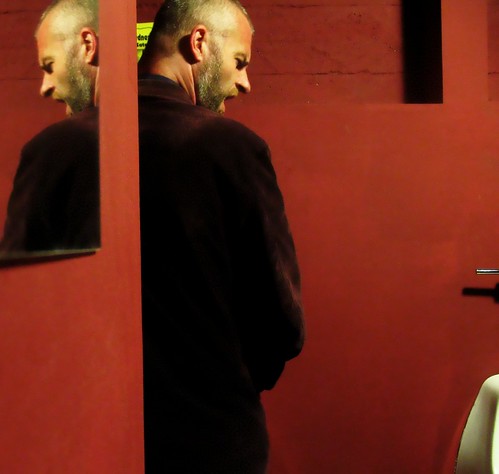 If you’re shy and interested in finding a job, you may be wondering: What are some good jobs for shy people?
If you’re shy and interested in finding a job, you may be wondering: What are some good jobs for shy people?
The traditional advice concerning jobs for shy people goes something like this: since you are shy, you will feel uncomfortable dealing with people. Therefore, you should pick work where you don’t interact a lot with others.
Based on this line of thinking, several career fields and jobs with minimal human interaction are recommended for shy people, such as:
- IT. Good jobs include: computer programmer, software developer, computer systems analyst and web designer.
- Finance. Possible jobs are: accountant, financial analyst, credit analyst and actuary.
- Writing. Good jobs include: author, photographer, article writer and content translator.
- Health Care. Some nice jobs are: lab technician, researcher, equipment preparer and medical transcriptionist.
- Blue Collar. Possible jobs are: janitor, maid, gardener, repairman, factory worker or truck driver.
While it is true that the jobs above won’t involve too much social contact so you won’t find them stressful from this perspective, there is a potentially huge problem with pursuing such a job.
In order to comprehend this, consider a few important ideas which, as a social confidence coach, I’ve discovered to be very accurate.
1. Deep down, you may actually love jobs that involve social interaction.
Many shy people I’ve coached were deep down very sociable and they loved interaction with people. But on top of that was a layer of insecurities that made them feel nervous in social situations.
However, once they managed to remove that layer, the love for social interaction became obvious. Many of them work in fields where they regularly deal with people, such as sales, recruitment, training or management, and it’s deeply fulfilling for them.
If they would have just avoided jobs that entailed social contact, they never would have ended up doing what they truly love.
2. Shy people don’t necessarily have bad social skills and good technical skills.
Many of the shy people I know are in fact very intelligent socially. They have an intuitive understanding of people and intrinsically, they have sharp social skills. It’s just that the nervousness they feel when dealing with others can inhibit these skills from manifesting.
I also know shy people who work in jobs like computer programmer or accountant and they suck at them. Because that’s not where their natural skills are; it’s just where they don’t have to face the discomfort of dealing with others.
So, it’s a big mistake to assume that if you’re shy, you automatically have an inclination towards technical jobs and lack an inclination towards working with people. You never know what’s beyond the shyness.
3. A big part of overcoming shyness is exposure to social situations.
Yes, shyness can be defeated. And right now there is an overwhelming amount of empirical evidence confirming this.
However, a very important step in defeating shyness is engaging in social interactions reputedly instead of avoiding them.
This exposure to social situations will help your brain get accustomed to them, and change your beliefs about yourself and others, thus making you more confident socially. This leads me to my next point…
4. Avoiding jobs that entail social contact just perpetuates the problem.
Shy people avoid social contact. And it’s perfectly understandable, because it’s scary. Nevertheless, considering the role of exposure to social situations in overcoming shyness, this only keeps their problem alive.
With respect to their career, shy people avoid social contact by looking for jobs that imply very little of it, it any. And they are quick to believe these are the best jobs for shy people.
I often hear shy individuals saying: “I don’t want to have to deal with others in my job. It’s demanding!”
Well, the fact dealing with others is demanding is the very reason why you should consider a job that entails dealing with others.
You can’t stay away from what scares you forever.
At one point or another, if you want to truly live your life, you need to face your fears. And a major way to do this is avoiding the “traditional” jobs for shy people and instead choosing a job that gets you interacting with people.
I’ve had coaching clients who worked, at least for a while, in jobs like door-to-door sales person or customer service representative, precisely because they were intimidating for them.
And these jobs provided a good amount of social exposure, which helped them build their social confidence.
By the way: if you want to learn how you can gain social exposure as effectively as possible and build rock-solid social confidence in literally just a few weeks, check out this presentation right now.
So: What are the best jobs for shy people?
They’re the same jobs that are best for anyone else: the jobs they have a natural inclination and passion for.
Look deep into your heart and ask yourself: “What would I really like to do if I wouldn’t be shy?”
It could be a technical job; it could be an extremely social job. Either way, that’s the path to pursue in your career.
And even if deep down, you truly want to work in a job that requires little social contact and you do have natural skills for it, you may still want for a few months to give a try to a job that requires lots of social contact. Simply because the experience in itself will be extremely useful in developing your social confidence.
Remember: the most valuable experiences in life are often the ones that you’re afraid of.
Inage courtesy of Ed Yourdon

 There is one way to make people like you that’s very popular and I’m adamantly against. That is being really nice with people and doing nice things for them all the time. Sure, you can get some people’s approval be being a
There is one way to make people like you that’s very popular and I’m adamantly against. That is being really nice with people and doing nice things for them all the time. Sure, you can get some people’s approval be being a 




